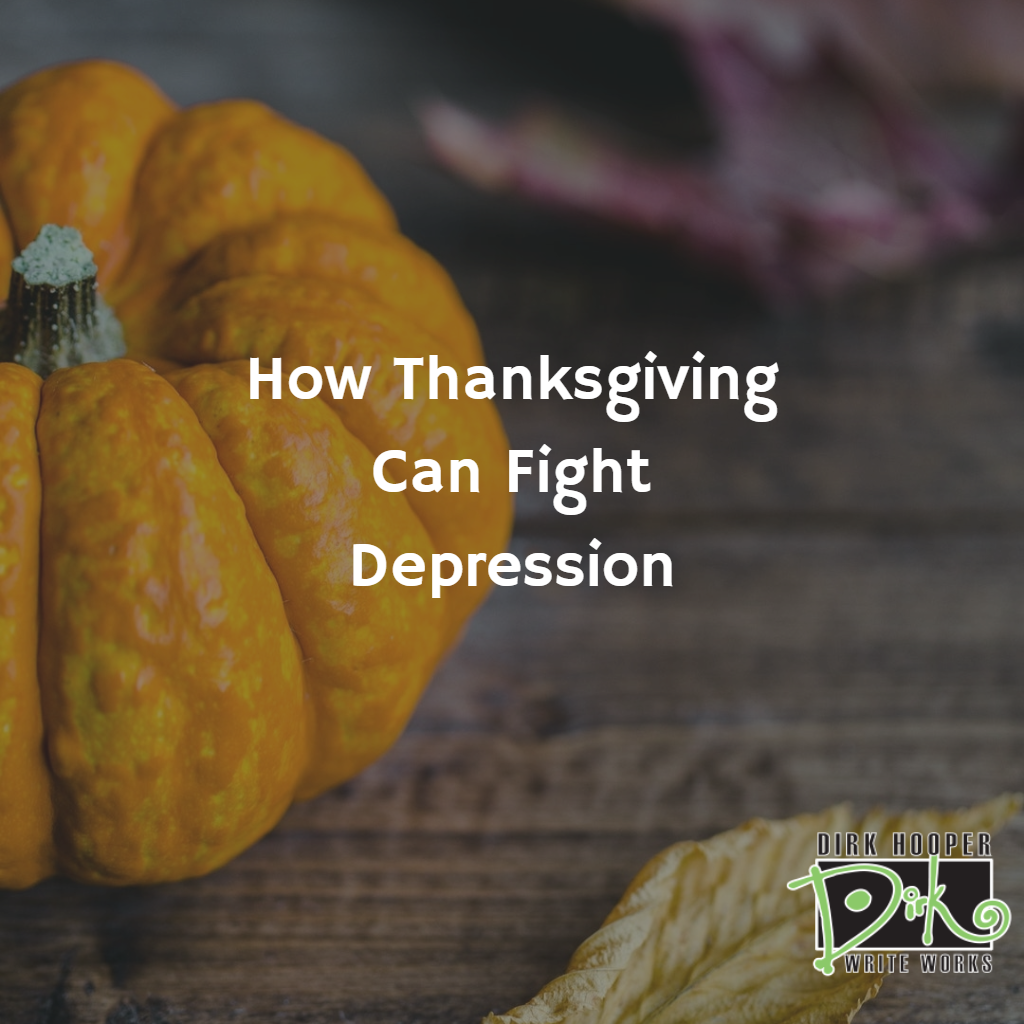
Thanksgiving now is a quieter affair. Instead of the lavish gatherings we used to have I’ve spent the last few years with my parents and friends… and often eaten something besides turkey and dressing. The meaning of Thanksgiving has changed for me too.
One of the things that I’ve recently discovered is how important Thanksgiving can be if you reflect on what you’re thankful for.
I don’t know about you, but I spend an inordinate amount of time worrying about things, particularly stuff that is completely out of my control. I’ve had challenges lately, particularly with my dad’s health, which can absolutely wreck you if you let it.
What I’ve learned is that the cure for stress and depression is closely tied to gratitude.
That’s not something I made up, it’s backed by science.
Psychology Today reported,
“Scientists say that (gratitude shifts) our thinking from negative outcomes to positive ones, elicit a surge of feel good hormones like dopamine, serotonin and oxytocin, and build enduring personal connections. The insight and reflection of counting these moments is what makes the practice of gratitude so powerful. But the key to combating depression is making these positive experiences part of the fabric of your life.”
Gratitude and Your Health
That means by practicing gratitude, you can make physical and mental changes that benefit you directly.
Thanksgiving is a great opportunity to take stock in all the things you should be grateful for. Look around you. If you’re breathing you should be thankful. Be thankful for all your friends and family. Be thankful for your job, or where you live, or what you do in your spare time. Find thanks in things both big and small.
While Thanksgiving is a good day to look at the big picture, you can benefit from practicing gratitude every day.
When is the last time you’ve called an old friend? Do you recognize when someone does something kind for you? Do you take time to practice the skills or attributes that challenge you or make you happy? All of these things and many more can brighten your life, but only if you recognize them regularly.
Find the blessings and joys in your life and hold them close to your heart. They will keep you warm in the winter months to come.
